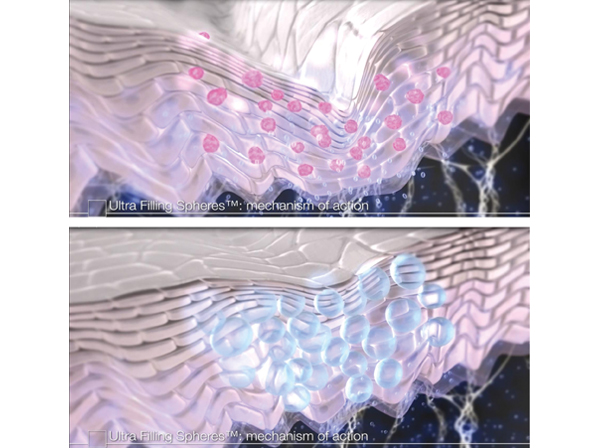
Belinda Carli, the director of Australia’s Institute of Personal Care Science (IPCS), reveals the raw materials that will be making their way into your salon’s skincare products.
Consumers are increasingly demanding high-performance cosmeceuticals. Fortunately new science-driven active ingredients are now enabling skincare companies to meet this growing demand for products that really deliver on results. Key growth areas in the fields of ‘high science’ include the following trending concepts.
Collagen renewal: We’re seeing a big increase in materials that either provide a rapid filling effect or moderate collagen synthesis and degradation within the skin. Although topically applied collagen provides a moisture-protective quality it is too large molecularly to penetrate the skin’s surface, but there are many actives now available that are small enough to penetrate to the basal layers of the epidermis and stimulate collagen renewal in the dermis. One of the most exciting launches in this area is a material called Liftonin-XPert by Rahn, which is a sap of the bulbine frutescens plant (key INCI: Bulbine frutescens leaf juice). This material provides ‘smart collagen management’; stimulating proliferation of fibroblasts, activating production of high quality collagen and acting as a collagen filler and lifting agent.
Instant fillers: Forget about injectable materials as there are now incredibly effective topically applied materials such as Ultra Filling Spheres by BASF (key INCI: Sodium hyaluronate, Amorphophallus Konjac Root Powder). These spheres contain low molecular weight HA (<40 kDa) combined with konjac glucomannan, a natural, highly hygroscopic material with molecular weight >200 kDa. These components are cross-linked and dehydrated to enable epidermal penetration where they then swell with surrounding moisture to 17 times their normal size (measured in vitro).
Epigenetics: A relatively new skin science, epigenetic effects relate to the switching ‘on’ or ‘off’ of genes without affecting the DNA itself. In the personal care industry, epigenetic science refers to the use of specific active ingredients that are able to modify cellular activity for visible skin benefits. Some beneficial cellular modifications may include: cell proliferation stimulated to improve tissue regeneration; regeneration of skin cells in spite of their age (enabling older skin cells to mimic the activity of younger skin cells); and the stimulation of skin renewal and turnover. The resulting improvements to skin tissue regeneration, revitalised skin cell function and renewed skin cells produce noticeably visual results ‒ younger, smoother looking skin. Key actives incorporating epigenetic science include:
- Reproage Peptide by Lipotec (key INCI: Acetyl Hexapeptide-8): An epigenetic regulator known as microRNA-145 specifically represses the activity of stem cell transcription factors, reducing the essential characteristic of stem cells that give them the ability to self-renew and differentiate (also referred to as a cells’ ‘stemness’). Reproage Peptide modulates RNA-145 levels (which are higher in aged skin) by ‘reprogramming’ cellular activity at the epidermal basal layer and supporting cell ‘stemness’. In-vivo results have shown Reproage Peptide rejuvenates epidermal self-renewal activity to behave up to 17 years younger and in doing so, provides dramatic skin smoothing anti-ageing skin benefits for a complete, and very noticeable anti-ageing effect.
- Chronogen by Ashland (key INCI: Tetrapeptide-26): An anti-ageing tetrapeptide that utilises epigenetic science to boost the expression of ‘clock genes’. Its unique activity provides dual benefits: a selective ‘switching on’ of protective genes during the day to defend against UV-light induced damage; and an alternative ‘switching on’ of regenerative genes at night to repair and reverse damage, restoring cell functionality for a more youthful appearance on waking.
- Epigenetics/Stem Cells: There are some really interesting materials incorporating the high science of epigenetics in conjunction with stem cells to obtain dramatical skin renewal and anti-ageing benefits. Actives with this technology include PhytoCellTec Alp Rose (key INCI: Rhododendron Ferrugineum Leaf Cell Culture Extract) and PhytoCellTec Solar Vitis (key INCI: Vitis Vinifera (Grape) Fruit Cell Extract) by Mibelle AG Biochemistry, Both of these actives are based on plant stem cell extracts with epigenetic factors and metabolites to protect skin stem cell functions under extreme climate and UV conditions respectively.
Belinda Carli is the director of the Institute of Personal Care Science. IPCS provides distance training in Cosmetic Formulation, Brand Management and Regulatory Affairs. For more information email belinda@personalcarescience.com.au or visit www.personalcarescience.com.au

